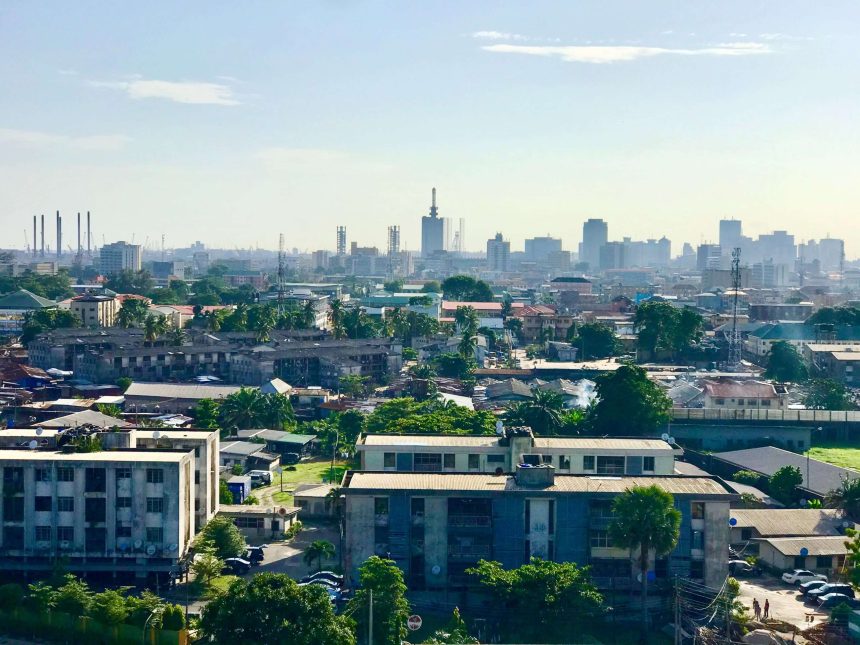Behind the polished facades and manicured lawns of Lagos most coveted addresses lies a stark contrast between the promise of luxury and the reality of daily life. In upscale enclaves like Lekki, Ikoyi, Banana Island, and Victoria Island, homes command prices that rival those in global capitals, but residents say what they receive in return barely scratches the surface of premium living.
Despite investing millions in property purchases, rents, and annual service charges, homeowners face persistent challenges: unreliable water supply, crumbling infrastructure, sporadic electricity, and mismanaged services.
The Price of Prestige
In Lagos, prestige carries a heavy price. Residents of estates marketed as “exclusive” often find themselves navigating potholed roads, flooding streets, and erratic waste disposal systems. While gated communities in Dubai, Johannesburg, and London offer seamless utilities and top-tier estate management, Lagos high-end estates frequently rely on private solutions diesel generators, boreholes, security guards just to maintain a semblance of comfort.
“It’s a mirage,” said Paul Omenka, a Lekki Phase 1 resident. “You buy into the illusion of luxury but end up living in a system where the basics are broken.” In many of these neighborhoods, clean water is a luxury in itself, and power outages are the norm despite promises of uninterrupted supply.
Water Woes and Financial Fallout
Deji Giwa, a property developer who bought a short-let apartment in one of Lekki’s most talked-about estates, recounted two years of escalating frustration. His investment, he explained, has turned into a liability due to contaminated brown water and frequent blackouts.
“I paid over N100 million in rent and renovations expecting premium returns,” he said. “Instead, guests leave after one night. There’s no water, no power, and I can’t even work from home.”
Giwa now lives in the apartment himself, relying on bottled water for basic hygiene. “We were sold a dream,” he said. “What we’re living is a nightmare.”
A Crumbling Ideal
Field investigations reveal a disheartening pattern. Roads are often washed away during Lagos intense rainy season. Drainage systems, if they exist, are frequently clogged, contributing to mosquito infestations and flash flooding. Yet residents continue to pay service charges amounting to hundreds of thousands or even millions of naira annually.
In Banana Island, Lekki Phase 1, and Victoria Island, luxury is increasingly defined not by what the estate provides, but by how much a resident can afford to self-supply.
In some parts of Lekki, residents are also battling a bizarre and alarming invasion monkeys. A viral video recently captured one homeowner decrying how monkeys had broken into her kitchen and ransacked food supplies. Conservation experts attribute the incursion to habitat loss due to rapid land reclamation and urban expansion.
“These animals were here long before us,” said Olumuyiwa Majekodunmi, head of a local urban forest initiative. “We’ve pushed too far into their space, and nature is responding.”
According to data from the Nigeria Housing Market platform, Lagos luxury real estate is on par with international pricing. Properties in Banana Island and Ikoyi can cost upwards of $5 million, placing them among the most expensive in Africa. But while Lagos offers promise and prestige, it falls short in infrastructure, transparency, and governance.
“Buyers pay for a dream, but live with daily dysfunction,” the platform notes. “In global cities, high-end estates offer uninterrupted power, clean water, and responsive management. Lagos model relies too heavily on residents to plug the gaps.”

Unkept Promises, Uncertain Futures
Adding to residents’ frustration is the recent controversy over the leasing of the long-promised Lekki Coastal Road to private developers. Stakeholders argue that the move could permanently derail infrastructure progress in one of Lagos fastest-growing corridors.
Olorogun Emadoye, president of the Lekki Estates Residents and Stakeholders Association, warned that without urgent action, Lekki could face gridlock worse than Apapa. “This isn’t just about convenience,” he said. “It’s about the future livability of Lagos.”
Government Response
When contacted, Lagos State officials reiterated the government’s commitment to infrastructure development. Information Commissioner Gbenga Omotoso emphasized ongoing investments across key areas, while urging citizens to stop blocking drainages with refuse. “Lagos lies below sea level. We face unique challenges,” he said.
Commerce Commissioner Folashade Ambrose-Medebem added that upgrades to the Lekki-Epe Expressway are underway in partnership with the private sector. The Ministry of the Environment attributed brown water complaints to geological factors, not government negligence.
Real estate experts argue that while Lagos premium market still attracts investors, the gap between price and service is widening.
“In Lagos, every resident is their own utility provider,” said Dr Meckson Okoro, a leading estate surveyor. “They fund their own power, water, and security. That’s not sustainable for a city trying to compete globally.”
He added, “In Dubai, you get what you pay for. In Lagos, you pay twice first for the property, then for the infrastructure you’re forced to provide yourself.”
The Call for Accountability
Across the estates, calls for transparency, accountability, and reform are growing louder. Residents are demanding clearer service agreements, effective oversight, and a functioning infrastructure that matches the luxury branding of these developments.
Until then, Lagos gilded estates remain, for many, monuments to a broken promise a glossy façade masking a frustrating, self-funded reality.



